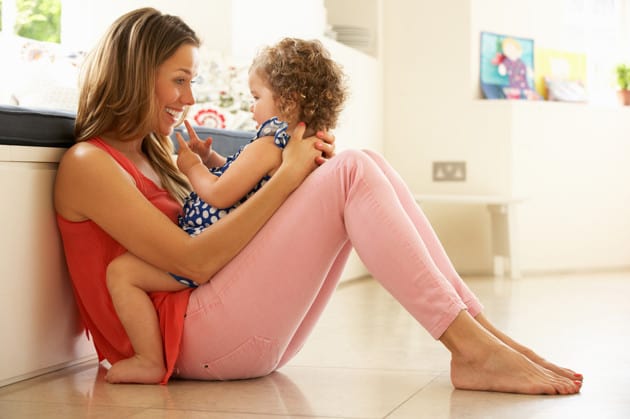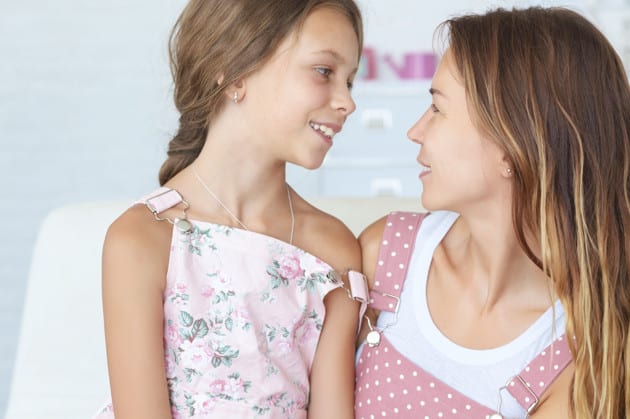
One day my little brother came home from school and asked my parents, "Mom, how do I get your genes and dad's genes?"
Kids are curious, and there will come a day where your child asks a question regarding their body parts, puberty and sex. It is wise to prepare now for these moments so that you aren't taken off guard. Of course you are going to want to respond with age appropriate answers- here is an age-by-age breakdown for discussing these sensitive topics:
Birth to two
Infants and toddlers at this age are curious about their bodies (and sometimes other people's bodies). They might touch their genitals during diaper changes or tug at other people's shirts to try to see what's hidden underneath.
They do not understand that these kinds of actions are inappropriate. Try talking to them in a way that will not make them feel embarrassed. You could say, "We don't do those things in public." You can also help your child by labeling their body parts. When they have this knowledge, they will start to feel more comfortable with their body, according to Meg Hickling, a sexual health educator and author of The New Speaking of Sex: What Your Children Need to Know and When They Need to Know It.
Three to five
Around these ages, your child is about to start preschool and kindergarten. They need to know that some of their body parts are private. To make it easy for them to understand and remember, tell them not to let anyone touch anywhere a bathing suit covers.
By the time they start school, your child should know the names and functions of their body parts, according to the American Academy of Pediatrics.
They also might be curious about where a baby comes from. A simple answer such as "You lived in a place inside mommy called the uterus until you were born" is fine.
Six to nine
This is the time when your child might start asking about sex. You do not need to bring up the topic, but if they ask, do not avoid answering their questions, according to John Chirban, PhD.
Be brief. Only answer the questions they ask. They might feel overloaded if you give too much information. At this age, they only need to know the basics.
Start the puberty talk at eight years old. This is the best age to talk to your child about puberty, according to Kids Health, because many girls are wearing training bras by this time, and boys voices start to change a few years later.
Do this in a casual setting. If you put on a dress and drive to a church parking lot to discuss these topics, your child might feel that they can only go to you with questions about puberty and sex in a formal setting. Having this conversation in an everyday environment can help them to feel calm.
Ten to 12
Your child might be shy about asking questions about puberty and sex, so if they don't ask about it by this age, consider bringing it up.
Your child is around the age where they are beginning to notice changes in their body. Talk to them about what is happening and why. Having this knowledge can help them feel more comfortable about their body's development.
Use a diagram to help your child better understand these changes. Having something to look at can also break some of the awkwardness between you and your child.
When talking to your daughter about periods, here is a good tool to use. When she's ready, consider showing her a pad or tampon so she can see what it looks like and understand how to use it.
For teaching your daughter or son about sex and conception, find a diagram that shows what happens inside the uterus.
Talking to your child about their body, puberty and sex is important, because when you're the one to tell them, you can teach them in a wholesome and loving environment. Hickling said, "If you want to be first, you have to make sure you're first; otherwise kids will get their information and attitudes from other children and the media."
When you start talking to your child about these topics at an early age, they might begin to feel more comfortable with coming to you when they have questions, and that's the kind of communication every mother wants between her and her child.





